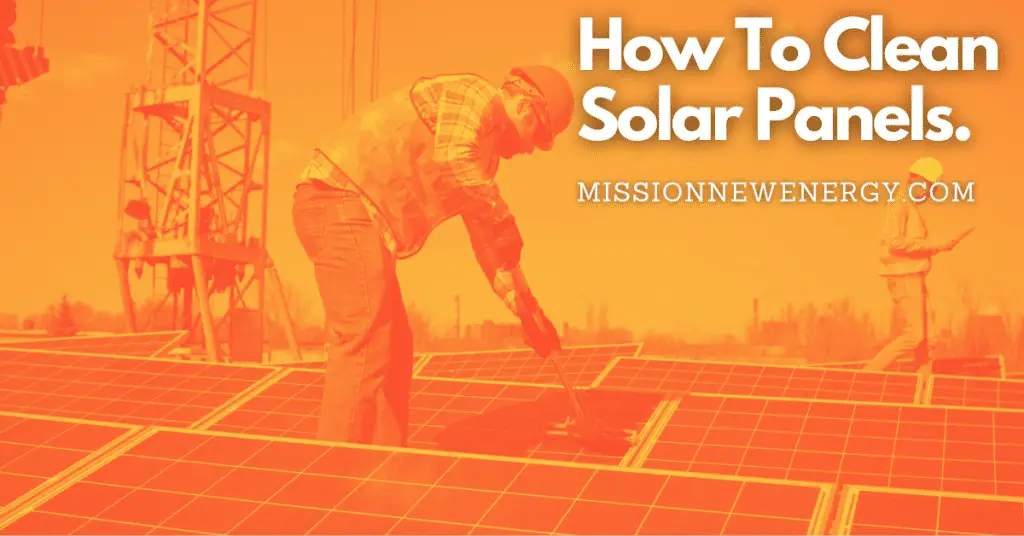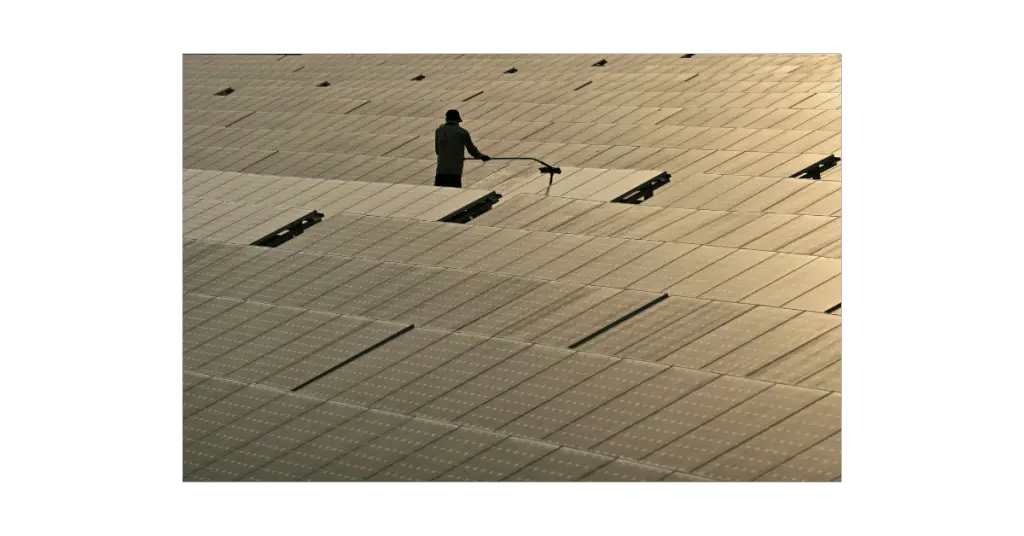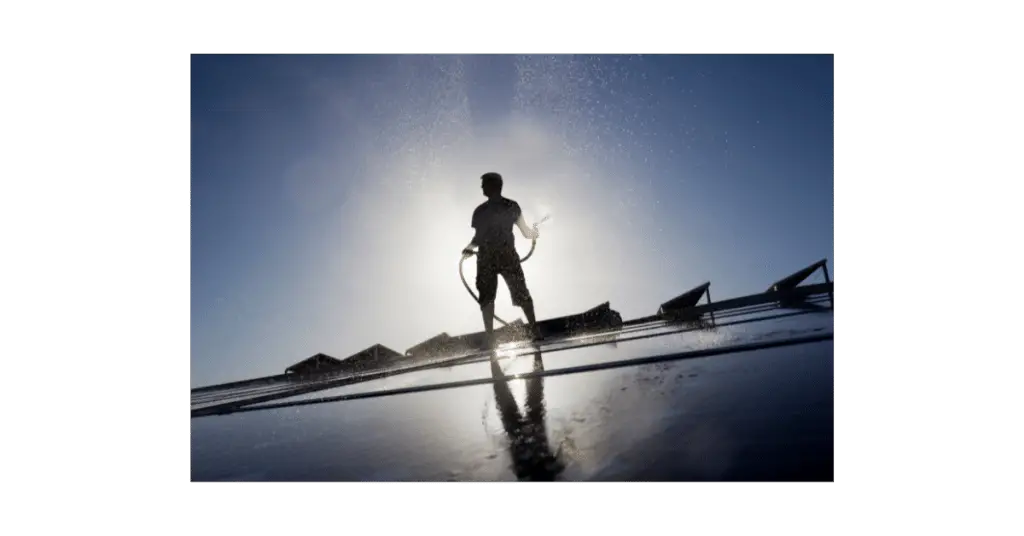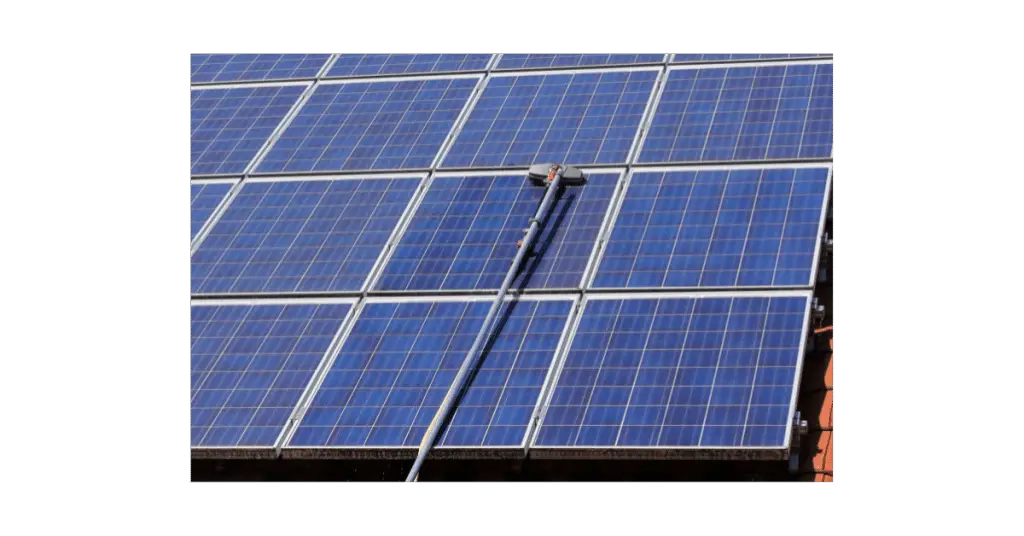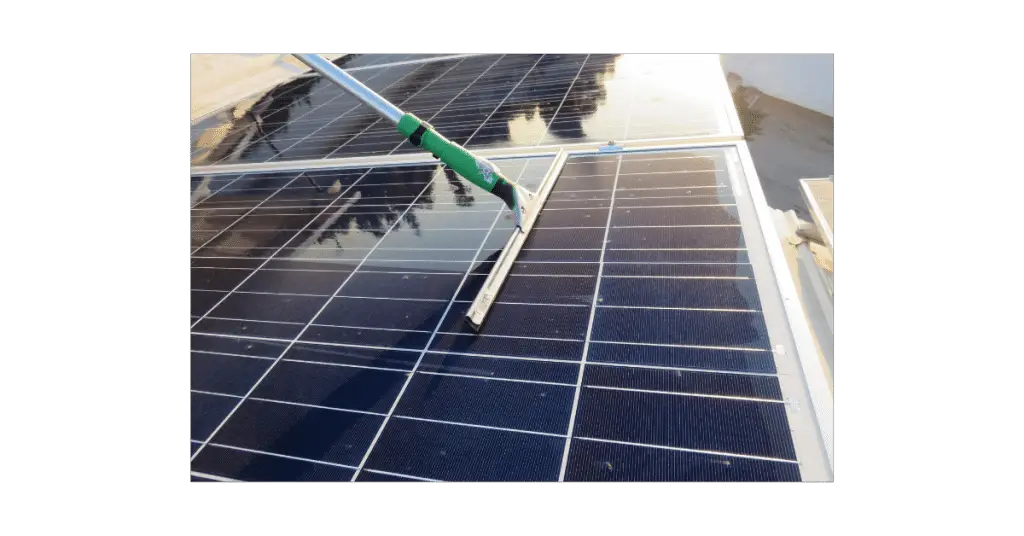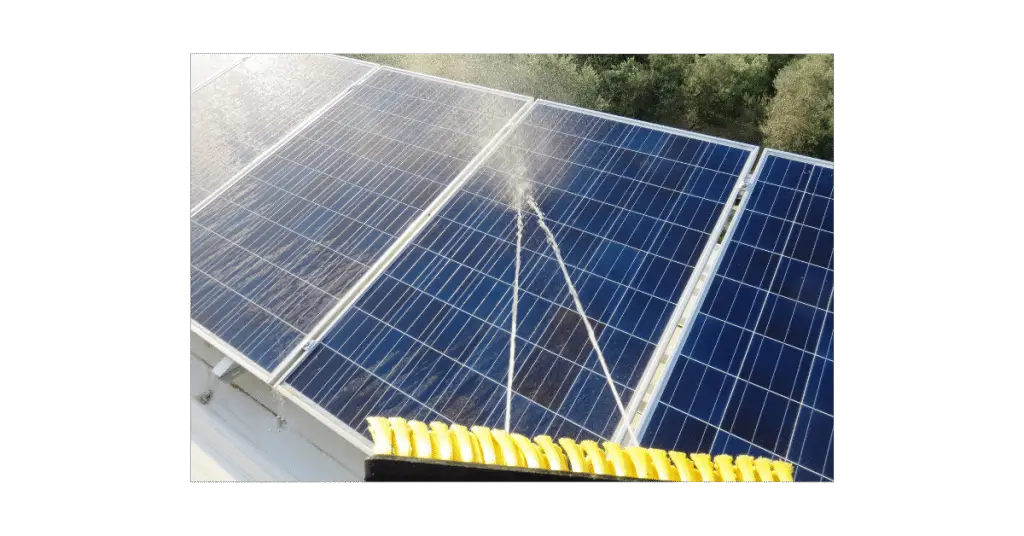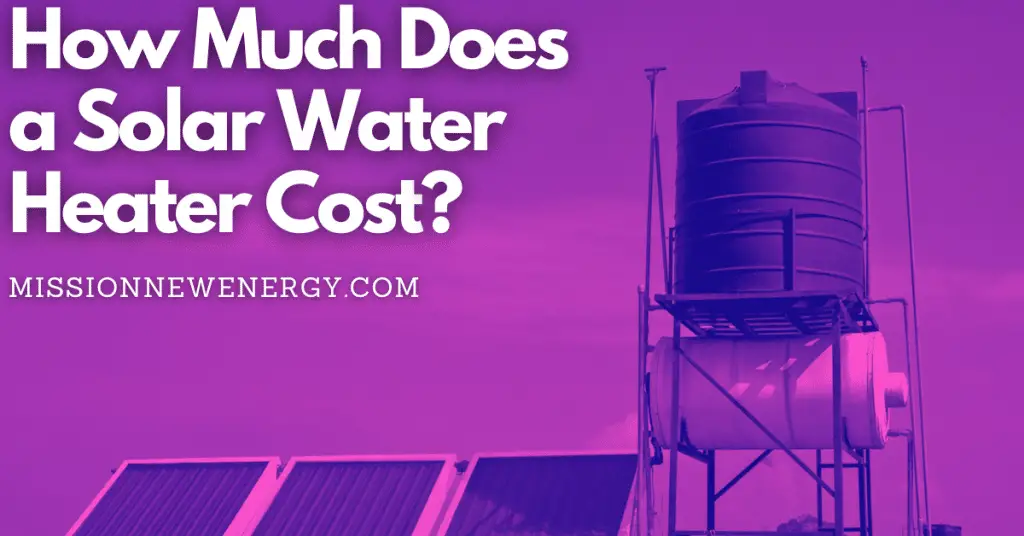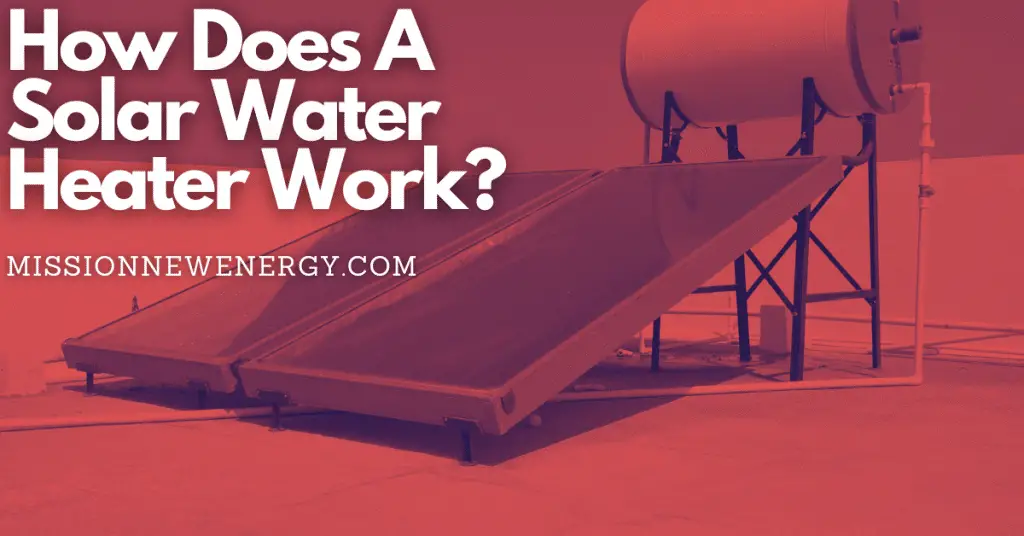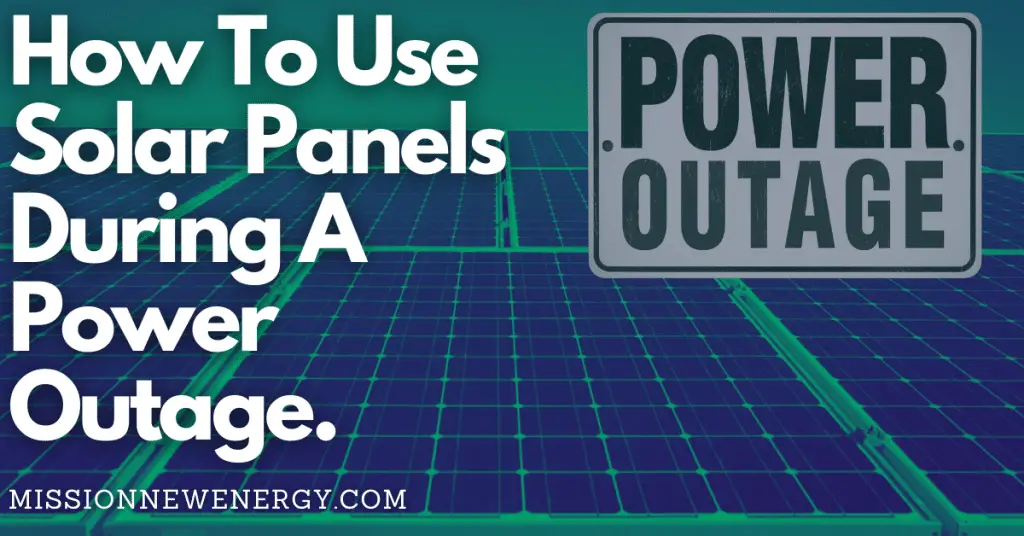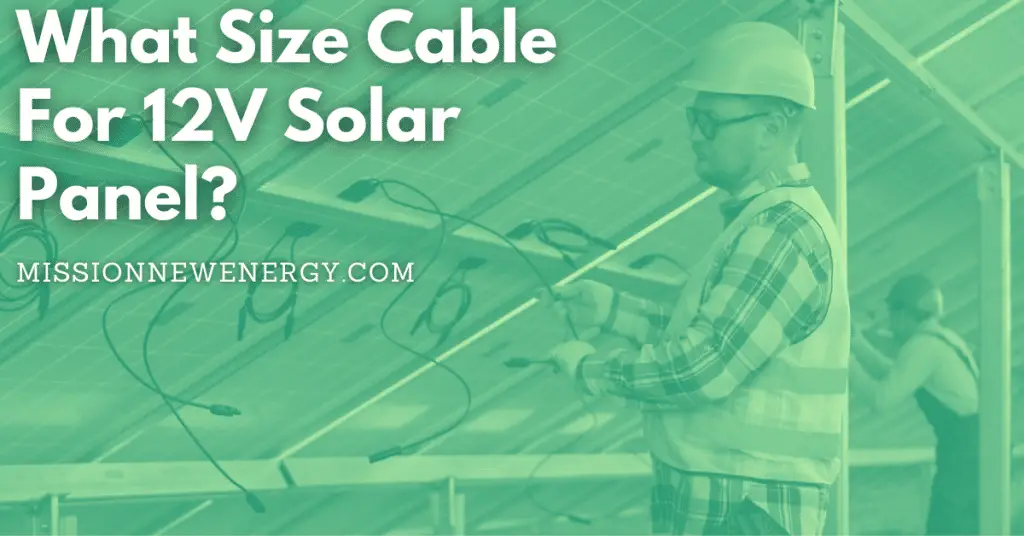The number of people using solar energy grows exponentially every year. So, it has the potential to save money on your energy bill, and it’s fairly easy to come by.
But, when you have this fantastic green tech, as with anything, you will have to perform regular cleaning to keep them in top condition.
You want to know how to clean solar panels and the good news is there aren’t any moving parts, so cleaning your solar panels aren’t difficult. But, it’s one component to owning them that you should take seriously.
You only need to use water, but your approach to cleaning them will depend on where they’re located in the building.
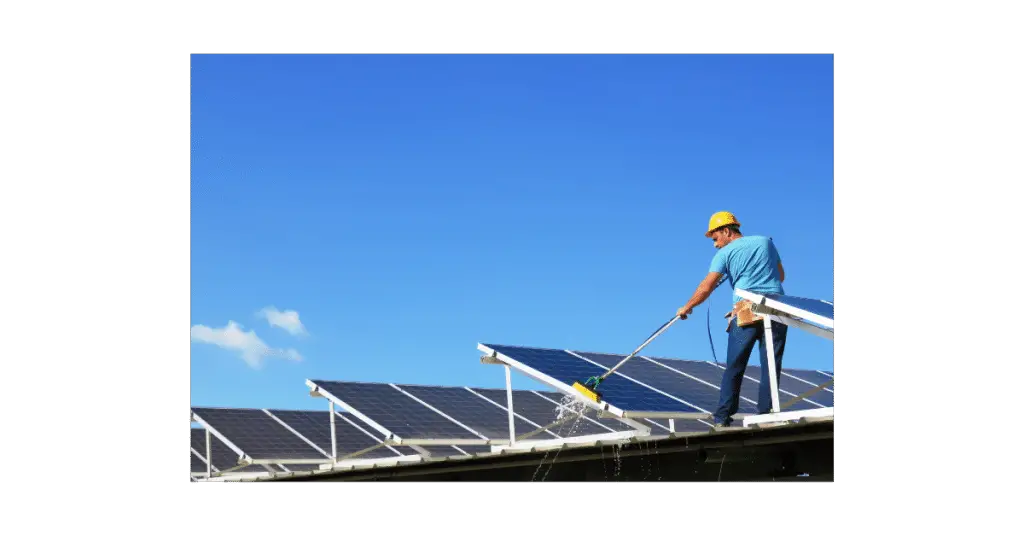
The process isn’t much different than cleaning typical window glass, but it can save you a lot of money by keeping them clean. This is because not cleaning them is akin to burning money in the fireplace.
Contrary to popular belief, you can’t just trust that rainwater will take care of any debris.
Rain Won’t Always Effectively Clean Solar Panels
Although rain is an excellent help in keeping solar panels clean, this won’t always be the case. For example, if you have a flat install, the rain will only compound the dirt problem.
But, this will not take care of pollen, tree sap, bird droppings, leaves or fog from air pollution that builds upon the surface of the panels.
Plus, areas with more than normal rainfall will develop a sticky haze on the panels’ glass. This can greatly affect energy output and end up costing you more money in the long run.
Weather Conditions & Environmental Considerations
However, even with flat installs, regular cleaning shouldn’t be frequent if there’s heavy rainfall every spring and summer. You may have to clean them once in a while, but not nearly as much as someone who lives in the desert.
Regardless, you will have to clean them at some point.
Surprisingly, though, if you live in rainforest-like conditions, cleaning your panels will be crucial.
This is because even though the plentitudes of rain will remove general debris, the residues picked up by the rain will collect on the panel’s surface.
This develops as a haze that rain isn’t likely to wash away.
Occasional Cleaning
If you have angled panels, rain should often work like a dream. But of course, this is going to depend on the immediate environment.
If there are many air pollutants, thick layers of dirt, or drippy tree sap, you will have to clean them on a regular but occasional basis.
You can think of it in terms of the same way you view the cleaning process of your car. If rain was an effective cleaning method, why do people take their vehicles to a car wash?
This is because of the dirt, dust and debris rain can leave in its wake. It doesn’t matter that the solar panels sit higher off the ground.
Rain’s effect can be the same.
Steps to Solar Panel Cleaning
Cleaning solar panels isn’t difficult, but you want to devise a plan of action before attempting it. Even though there’s really only one effective method to do this, different setups will require various approaches.
Always turn off your system before cleaning. Follow these simple steps and learn how to clean solar panels safely and effectively.
- Refer to Manufacturer’s Instructions: The company that made the solar panels will definitely have suggestions on cleaning them. Follow their instructions so that you maintain the best condition of the solar panels and keep your warranty intact.
- Select the Right Time of Day: Because solar panels absorb lots of sunshine all day, they’re going to be very hot and can even burn you. So either you wash them early in the morning, just after dusk or on a cool day that’s not hot and sunny.
- Use a Garden Hose: For most dirty issues with solar panels, turning on your garden hose with cold water should do the trick. Doing this once in a while will prevent dirt and dust from building up in excessive amounts. For this, you should be able to do it from the ground.
- Hand Washing Panels: If your solar panels have stuck-on dirt, you will have to clean them by hand. Get a ladder (if needed) and use a bucket or spray bottle of warm water with a soft, non-abrasive sponge. Wipe them down in gentle circular motions.
Only Use Soap When All Else Fails
Avoid using soapy water for solar panel cleaning if you can. But, in the case the dirty panels are so bad that just water fails to remove them, you can use a few drops of mild soap in a bucket of water.
To ensure that no soap residue remains on the panels after cleaning, be sure to use your garden hose to properly rinse them.
It’s a shame, because dish soap on solar panels can reduce their performance. The residue will obstruct the sun’s rays and reduce production.
So, if you do use dish soap, make sure it’s a very sparing amount and be sure to rinse the panel off well afterwards.
There are a few products on the market that are biodegradable cleaners for your solar panels. They don’t use harsh detergents or other harmful surfactants.
You will have to shop around, but most of these boost water’s cleaning power.
Other Tips
You can use a window washer’s cleaning kit on your solar panels. This will help make cleaning faster and more accurate. These are fairly inexpensive, too, and you can find them at almost any home improvement or hardware store. Some machine-type models may be worth looking into as well.
It may be a good idea to get an electric-powered rotating scrubber with a soft bristle brush for your solar panels. It can do wonders if you live in an area where rain provides more dirt and dust than it cleans or if you have trees that produce a lot of sap.
There are some devices available on the market that will allow you to spray a cleaner specifically for your solar panels without using a ladder. There are many models available, but these offer a way for you to clean solar panels safely and easily.
Solicit Solar Panel Cleaning Services
If you aren’t confident in your ability to clean your solar panels by your lonesome, consider several solar panel cleaning services for some quotes. It may end up being less expensive than buying all the equipment to clean solar panels yourself. Hiring professional cleaners will be especially true if:
- Panels are excessively dirty, filled with tons of grime and gunk you can’t identify.
- The roof is too steep, high or slippery for you.
- You have physical limitations that prevent you from performing such a job
- You don’t have all the necessary and proper equipment to clean it
- You aren’t up to cleaning solar panels yourself
- You have a fear of heights or are nervous about climbing onto your roof
- Your warranty mandates professional cleaning
Considerations before Calling the Pros
In the event, you’re going to go with a professional service, call the original solar installer of your panels. If they don’t offer the necessary cleaning services, they should come up with some recommendations for companies that offer professional cleaning in your area.
Make sure you jot down all the information about roofing materials, the pitch of the roof, square footage of the solar array, along with photographs or digital renderings of how they lay across the rooftop.
The cleaning company will need to know all these things to configure how to handle cleaning the panels. It will also allow them to give you an accurate quote before you choose to hire them.
Then, when they arrive, shut down your solar system to guarantee the technician’s safety.
FAQs
Does cleaning your solar panels make a difference?
Cleaning solar panels makes a difference in how they absorb and convert sunlight into energy. If they’re blocked, they will be 15% to 25% less effective than normal.
This is because dust, dirt, bird droppings and other debris can collect on them. So, you will have to clean them on occasion.
If you have angled solar panels, rainwater will be a great helper in keeping them clean. But, if they’re flat, rainwater can contribute more filth and dirt than they will clean the solar panels.
So cleaning your solar panels will make a big difference. However, you could end up wasting money if you put it off for too long.
How often should solar panels be cleaned?
It would help if you cleaned your solar panels once or twice per year. At the very least, every spring once the snow melts. This is because more pollutants build up over winter with falling snow.
Experts estimate that clean solar panels produce 3.5% to 5.1% more electricity than filthy ones.
But, if you live near severe pollution sources, like airports, factories, freeways, etc., you will have to clean your solar panels more often. This will also be true if you have many sap-bearing trees or live in a heavily wooded area.
The best thing to do is to monitor your panels’ power output/input to see if there’s a decrease in their performance. For example, if you notice they’re at peak performance one week, and the following week it drops 10%, this will be a good indicator that solar panels need cleaning.
Is it OK to pressure wash solar panels?
If your roof is high enough from the ground to use a pressure washer, it’s okay to use it on a solar panel. However, you want to ensure that you don’t blast the solar panel with high pressure directly with harsh water pulses because it can create surface scratches.
These scratches have the potential to deplete the energy output of your solar panels.
This is because any scratches or other significant damage will cast little shadows onto the photovoltaic cells under the glass. So, exercise the utmost caution when considering a pressure wash for solar panels.
When in doubt, avoid using it altogether.
Do I need to turn off solar panels before cleaning them?
Always observe safety measures and procedures when deciding to clean solar panels. This means you should definitely shut down your solar system before cleaning the panels.
Then, whether using the garden hose, doing a hand wash or using some other means, wait about 15 to 20 minutes after you turn them off to start cleaning.
This way, you will ensure you don’t accidentally electrocute yourself or present water damage that will create a shortage in your system. When you’ve finished, don’t turn your system back on until the panels are thoroughly dry.
What is the average lifespan of solar panels?
On average, a solar panel can last for 20 to 25 years. However, some arrays installed as early as the 1980s are still working at their fullest capacity today. This means they can last even longer than expected.
But this also means you have to keep them clean and in tip-top shape to ensure this.
Most solar panels are remarkably reliable, and recent technological advancements have made them even more durable.
Now, just because a solar panel outlives its life expectancy doesn’t mean they stop working altogether. Their energy output will decrease, but they don’t stop working.
When that gets so low, it’s not delivering enough energy to your property. It’ll be time to get new ones.
What should I do with my solar panels when not in use?
There’s a bit of a debate over what you should do with your solar panels when you’re not using them. In most cases, you shouldn’t have to do anything to them.
But, some recommendations are suggesting you should cover them.
So, it’s really going to come down to personal preference and what kind of weather you experience throughout the year. If you live in a climate where there’s extreme weather, or you have valid concerns about energy overload, then you should cover them.
Covering Solar Panels
Like places with intense sunshine, high winds or harsh winter, extreme weather can damage your solar panels. Scratches, nicks and gouges from the surface of the panel will affect its ability to produce energy.
If this is a serious issue, consider portable solar panels rather than roof installation.
Because solar panels can produce energy from the sun, even when not in use, you may want to cover them to stop energy overload. In addition, batteries that have an overabundance can begin failing overtime with poor efficiency, so you may want to cover the panels.
But remember, solar panels are resilient, and solar companies build them to withstand the elements. So, covering them may not be necessary if you live in a temperate climate with fairly easy winters.
Routine cleaning and maintenance will help ensure you don’t have to cover them.
Final Thoughts
Cleaning your dirty solar panels isn’t difficult, but it will be something you have to do at least once per year. Even if you live in an area with heavy rainfall, you will have to clean them to work at peak capacity.
Dust, bird droppings, pollutants, weather conditions, dirt, and other possible sources of debris can and will accumulate on your solar panels over time.
So, it would be best if you rinsed them off once in a while to ensure the panels remain free and clear.
But if you notice a drop in efficiency, you may have to do a deeper clean.
If you have doubts about your ability to clean the panels, always contact a professional for help. When cleaned properly, solar panels can increase power output, improve efficiency and keep them working for decades to come.

